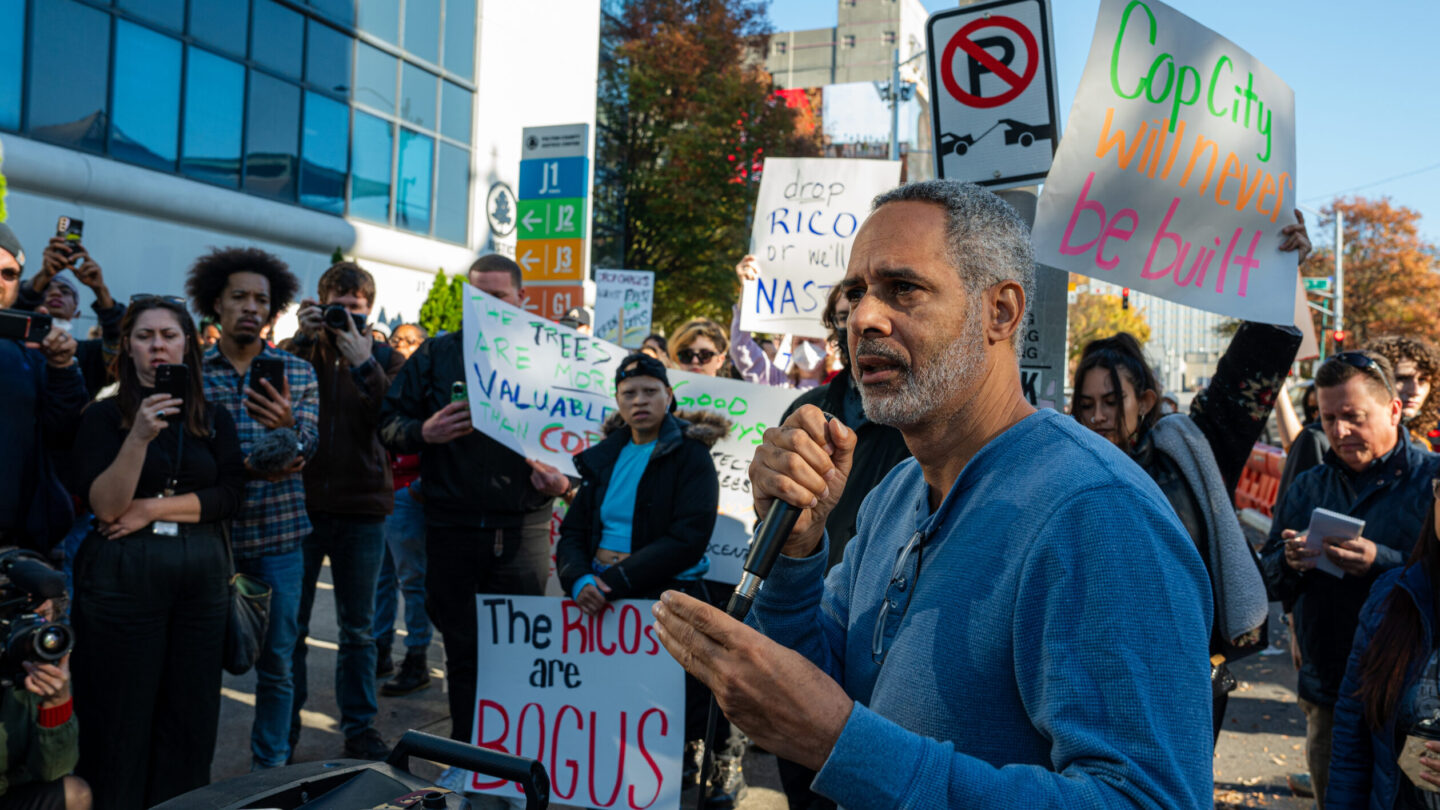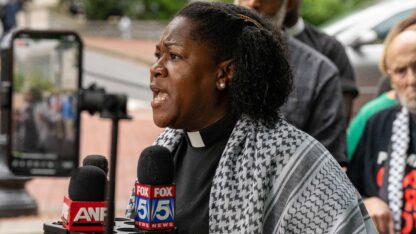The judge overseeing the state’s racketeering case against 61 opponents of the Atlanta Public Safety Training Center, dubbed “Cop City” by protesters, has given the prosecution just days to turn over any remaining evidence to the defense.
At a case management hearing Tuesday, Fulton County Superior Court Judge Kimberly Esmond Adams said the May 17 deadline is intended to keep more evidence from trickling in, potentially delaying the start of the trial.
Her goal is to go to trial before the end of the year.
Lead prosecutor John Fowler said an additional terabyte of evidence is forthcoming — mostly from cellphone data from more than a dozen devices seized from the defendants’ homes. The state has already collected approximately five terabytes of data.
Adams seemed unsympathetic to the cellphone extraction taking so long, saying she assumed the state had already turned over all evidence. She previously ordered them to submit complete discovery by the end of last year.
“When discovery trickles in, it makes my head hurt, because it makes it difficult for me to do my job,” the judge said before warning Fowler and his team against trying to manage the case.
“You all indicted 61 people,” she continued. “This is the attorney general’s choice.”
Defense attorneys packed the courtroom.
Over the past nine months, defense teams have raised concerns that prosecutors are denying them access to the evidence they’ve collected against their clients, such as clothes some were allegedly wearing when they were arrested during a music festival near the site of the training center.
Attorney Don Samuel said he hasn’t been allowed to see an arrest report or visit the site. At least one notice and motion was filed in March to preserve the site of the arrest and prevent the destruction of material evidence.
In response, Adams gave Fowler until June to arrange the visit, adding that jurors might need similar accommodations once the trial starts.
In response, Fowler told Adams the city has denied previous requests.
“I’m telling you that the city of Atlanta doesn’t get to say no, so whoever I need to tell that, I’m prepared to tell them,” the latter said, adding that she would sign an order if needed.
“If they want to proceed with prosecution, they don’t have an option to not make the site available for a visit. … The site is at the heart of the indictment.”
At least two defense attorneys said they also recently became aware of allegations that Atlanta police officers were using the encrypted messaging app Signal to communicate about so-called “Cop City.”
Last year, the Guardian reported that the Atlanta Police Department’s move to Signal likely occurred around the same time multiple police agencies entered a forested area where protesters were camped about a mile from the site, which resulted in state troopers shooting and killing environmental activist Manuel Paez Terán, or “Tortuguita.”
Fowler confirmed only that federal agencies use the app, noting that he’s asked the U.S. Attorney General’s Office for those messages.
The high-profile case against the 61 protesters, most of whom are from out of state, is one of several in Fulton County that deal with racketeering. The difference is that it focuses on the alleged “extremist organization” known as Defend the Atlanta Forest.
Some of the defendants face additional charges, such as domestic terrorism, arson and money laundering.
In an attempt to keep the case organized, Adams said the court has set up what she calls a “Cop City” email.
She has ordered the defense to send her an estimate for how long each of the 142 motions they’ve filed so far will take them to argue. Hearings for those are expected to be scheduled after May 21.
From there, the court will schedule a tentative start date for the trial, where she plans to try all the defendants in groups of five, depending on the order they are listed in the indictment.
Each group should take less than two weeks, with some potentially avoiding going to trial altogether due to potential plea agreements.
Defendant Ayla King, who uses they/them pronouns, is the only person who will be tried separately.
The 19-year-old’s trial was delayed earlier this year after their attorney appealed a ruling related to the right to a speedy trial.
At the time of publishing, the Georgia Court of Appeals has not yet reached a decision.









